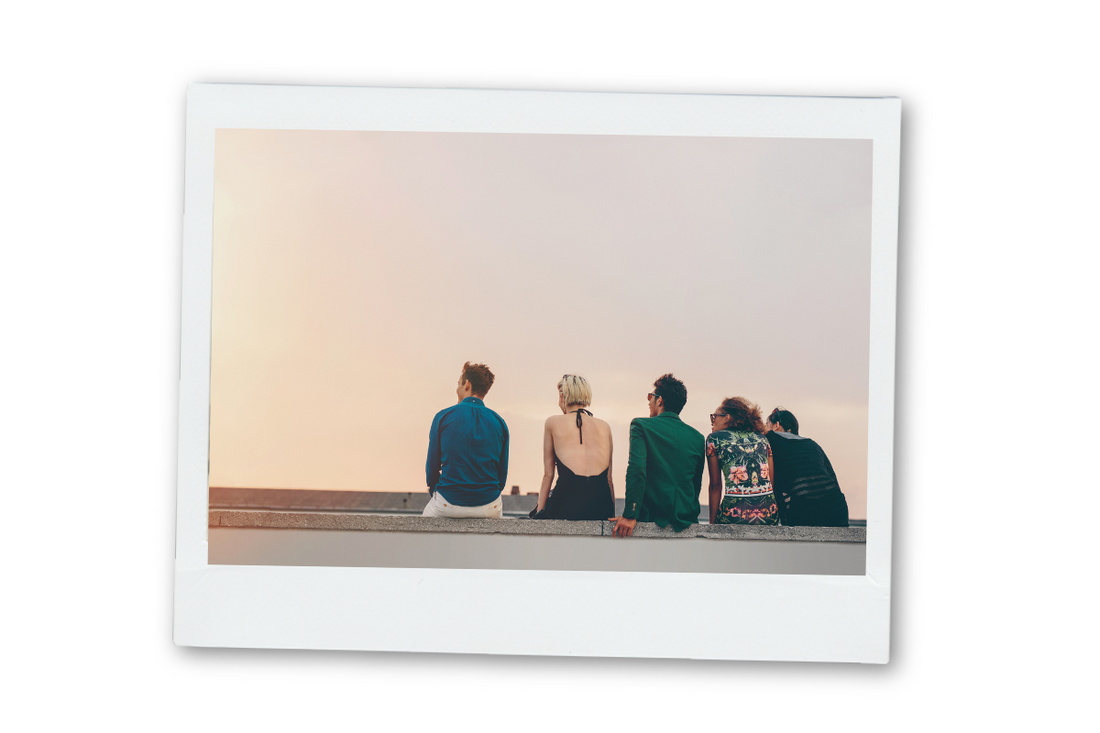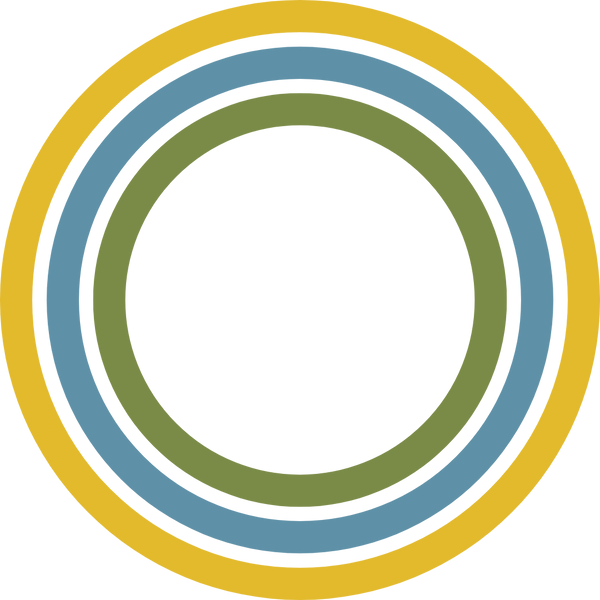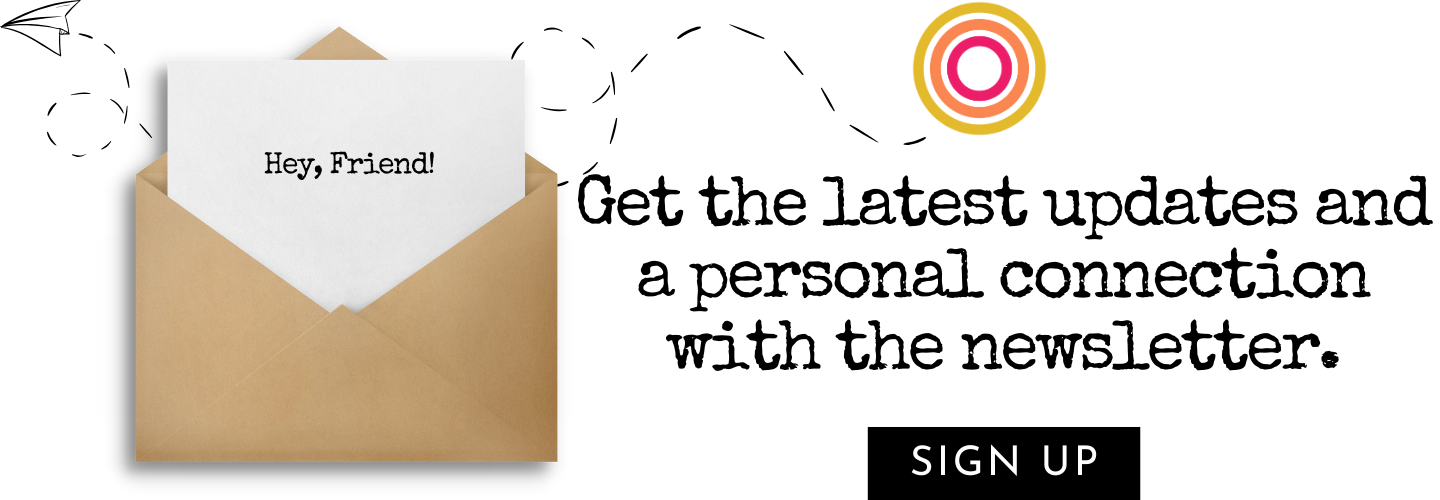
The Social Self
Share
Whether you’re a self-proclaimed hermit or not, the fact remains, humans are social creatures.
We need positive interaction with other humans in order to feel safe, to develop and grow. Not only that, but the systems in our world depend on collaboration. But despite living in a time where we have the ability to connect instantly with anyone around the world, I feel like we're actually in the midst of a social wellness crisis.
-
52% of US adults report feeling lonely
-
85% have a low self esteem
-
Nearly half experience verbal aggression within their intimate relationships.
-
And the upwards of 68% believe we need to create better trust between one another and our government.
And these are just a FEW statistics depicting a rather unhealthy social self.
But what exactly is the social self, and how do we change these numbers?
Today we're talking about our identity, relationships, social constructs, and personal worth so we can create not only a healthier social self, but society.
Welcome to Creative Self Care. I'm your host Crystal McLain, and together we're exploring creative ways to care for the mind, body and mother-lovin' soul so we can live healthy, empowered lives, individually and collectively.
If you enjoy this content, would like to support my work, AND score some sweet self care goodies, please consider a Patreon Membership for as little as $3 a month! Yup, three bucks…it’s like buying me a cup of coffee. To learn more about memberships and how funds are making a positive impact, you can visit: crystalmclaincreative.com.
And, if you like to read along WHILE you listen, you can access this feature through the blog version of this podcast. I’ll leave a direct link to this episode in the show notes below.
Alright. Let's get to it.
Our social self is more than just our connections with other people. It's how we identify ourselves in relation to these people. It's our self concept and self image. It impacts our beliefs about our worth and abilities. It influences the decisions we make in life. And it manages our relationships.
The good news is, you get to decide how you identify yourself. The bad news is, there are lots of variables out there that can influence how you create that identity. And they're not always supportive. Go figure.

We're all born with something called an "ego" which is how the conscious brain identifies what we consider to be the "self." And ever since the day you were spat into this world, you've been collecting data that shapes how you understand, identify, and evaluate it.
A lot of this data is pretty basic - general identifiers that describe things like, hair color, eye color, and height. The data gets a little more interesting when we start characterizing things like interests and personality traits.
But, while you're developing inside of your body, learning how to label who and what you are, you also learn the opinions of others.
Maybe it's the opinion that one body shape is more lovable than another. That one gender deserves more than the rest. That your particular way of being human is maybe too loud, too messy, too much or not enough.
Well, my friend, that's all bullshit. And, unfortunately, we've been believing this bullshit for generations.
Simply put, our beauty standards are set by capitalism. Gender roles established by the patriarchy. Colonialism keeps racism alive within our social constructs. Everywhere we look, there are messages that we should judge ourselves (and others) based on body type, gender, age, status, political leanings, spiritual beliefs, race, abilities, everything.
And there's no end to this madness. We will scrutinize and manipulate the smallest, most insignificant details of ourselves, in the quest to discover ways of becoming more desirable, acceptable, or just "better" in some way.
Did you know in 2022 Americans spent roughly 1.3 BILLION dollars on (can you guess...?) EYELASHES!
Yup, eyelashes.
Now I'm not here to tell you that you shouldn't spend your money on beauty products. That would make me a hypocrite. What I am here to tell you is, if you are criticizing or manipulating yourself in ANY way for the sake of increasing your “worth” because of some bizarre set of expectations set by a society that doesn’t really care about you, then it’s time to take a look at your social health.
Too many of us are restricting ourselves from loving ourselves. We're keeping ourselves from living a full life, or making meaningful connections because we feel like we simply can’t compare to the “ideal” person that we see advertised.

So, the first thing we should know is that comparison isn't necessarily bad. It's actually fundamental to our social development.
When we evaluate ourselves by comparing things like our abilities, achievements, and appearance to those of others, it CAN have a positive impact especially if we find ourselves being represented, included or encouraged in positive ways- which honestly I see a huge rise in compared to when I was much younger.
Comparison can also have a positive impact if we're using the information constructively.
Comparison can give us insight into the ways in which we want to grow. It can inspire and motivate us into becoming the person we dream of being. It can give us permission to prioritize our needs and desires. We can learn new ways of moving through the world that feel more aligned with our values, ethics and passions. It can help us appreciate our strengths, vulnerabilities and diversity.
Comparison only has an adverse affect if we have a negative mindset, little self awareness or a lack of body consciousness (which, btw, are topics we’ve discussed in earlier posts).
But yeah, comparison isn't bad. It's how you use the information. And depending on how you use it, will determine the outcome of your social health.

Having a healthy social self essentially means having confidence or a healthy self esteem. It also lends itself to feelings of acceptance and belonging. And when we experience these feelings, we typically have higher levels of satisfaction and psychological wellbeing. This is a powerful combination that makes it easier for us to make decisions that support ourselves fully- mind, body and soul.
When we have a healthy self esteem we're better able to:
-
adapt to social situations
-
stay true to ourself and our values in different relationships
-
create boundaries & advocate for ourself
-
develop & maintain healthy relationships
-
engage with community members
-
collaborate with others
Having an unhealthy social self, however, usually means we have a low self-esteem which can contribute to poor decision making, impacting our mental, emotional and physical health.
But how do we recognize when we’re in this mental space?
Having a poor self esteem can look like a lot of things:
-
staying in abusive relationships or toxic work environments
-
people pleasing
-
isolating or avoiding making meaningful connections
-
trying to "fix" others
-
needing continuous success or praise
-
perfectionism
-
procrastination
-
codependency
-
self deprecating humor
-
extreme competitiveness
-
needing to prove yourself
-
acting tough
-
blaming others for your own shortcomings
-
fixating on your your flaws or weaknesses
-
thinking other people are better than you
-
thinking you are better than other people
-
believing you don’t deserve good things
-
not accepting compliments
-
avoiding challenges for fear of failing
-
being overly upset by disapproval or criticism
-
feeling sad, depressed, anxious, ashamed, angry or worthless
I don't know about you, but there are a lot of things I've definitely check off from this list in my lifetime. But I'm determined to make the rest of my life the best of my life. So, I'm working to get creative with my self care and turn things around.
I hope you are, too.
If so, let's get started with a few ideas.

Before we really dive in, I think it’s important that we take some time to think about the different connections and relationships we have, because, honestly, we identify a little differently in each one. Not only that, but we have different rights and responsibilities within each relationship. Getting clear about all of this will help us establish better boundaries and expectations, and will help us to recognize patterns and dynamics that need to be addressed so we can build a healthier sense of self and better relationships.
So, with that said, let's start by identifying and evaluating our social self.

Pay attention to how you typically behave in each one. Are you the caregiver, the problem solver, the instigator? Are you passive or assertive? Understanding your natural tendencies can provide valuable insights into the different roles you play.

We all have a different sets of skills and weaknesses, and it’s helpful if we can recognize and work with them. Are you a good listener, providing emotional support to others? Or are you the pessimist who finds more problems than solutions? Recognizing your unique qualities can help you identify how you’re approaching the relationship you have with yourself and others.

Ask trusted friends, family members, or colleagues for their perspective on your role within your relationships with them. Sometimes, others can provide valuable insight into things we may not be aware of ourselves. Their feedback can help validate or challenge your self-perception.

Remember that the roles we have within our relationships are not fixed or static. They evolve and change over time, because WE evolve and change over time, as do our circumstances. Be open to adapting so you can keep up with the needs and dynamics of the relationship. Flexibility and creativity allow for growth and healthier connections.
Now that you have a sense of your role and tendencies, let's go over a few tips for cultivating a POSITIVE self image.

Beating yourself up or putting pressure on yourself isn't a part of a healthy social self care practice. Be kind, patient and understanding with yourself, especially when you find this process challenging.

Building relationships with people who support and uplift you is a total game changer. Joining groups, volunteering and taking classes in things that interest you will help you connect with other like-minded people. Even following social media accounts that promote inclusivity and empowerment can help you feel more socially accepted. Look for the places where you see yourself represented, and start engaging!

Like I mentioned earlier, we all have our own unique qualities and accomplishments. Celebrate all that you've been able to accomplish (even if it's managing to make through another day), and utilize your amazing strengths and quirks that make you, you. This world is so much more delicious because we're all so very different.

A lot of us want to create ways of living more in alignment with our true selves (or even figure out WTF that even means). List out the changes you'd like to make (these are your goals), and break down each one into manageable steps and celebrate your progress along the way.

It's important to pause now and then and think about how far we've come, and to determine whether or not our actions still feel productive and relevant. Be sure to take the time to understand your values, beliefs, and aspirations, and align your actions accordingly.

Alright my friend, remember, your social self is a complex conceptual thing that shapes your perception of yourself in relation to others. By taking the time to understand the things that influence your self perception, and adopting strategies to create a positive self image, you can enhance your well-being and relationships. And I can't help but believe that if we all took a little time to make ourselves more socially healthy, we'd live in a more supportive and progressive society.
If you enjoyed this content and would like to support my work (and receive a little extra creative self care goodness), I'd like to invite you to be come a Patreon member. Memberships start at just $3 a month and help support our communities most in need. If you're already a member, don't forget to snag your BONUS CONTENT.
I'll see you next time when we talk about the spiritual self...and no, I'm not talking about religion.
I love you.
I appreciate you.
Thank you so much for being here.
I'll see you soon.




